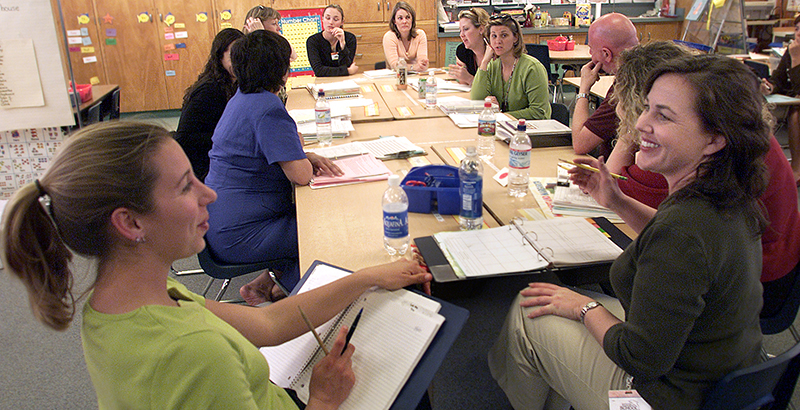Johnson: Closing School for a Day of Professional Development Isn’t Good for Teachers — or Parents

It was an awkward scramble that’s all too familiar to families in New York City. The district’s schools shuttered recently to give teachers time for a one-day professional development session, and the closing sent thousands of parents like me hunting for childcare options.
A one-day approach to teacher training isn’t just inconvenient. It’s weak practice, with research suggesting that educators do not typically learn much from an eight-hour session. Teachers, instead, benefit from an ongoing process of professional development that’s focused on instructional leadership and rich content — and goes on throughout the school year.
Imagine asking your child to learn how to do math or piano in a one-day workshop. It simply wouldn’t work. But in many schools, teachers are expected to learn in just this way.
New York’s school system has good company when it comes to closing its doors for teacher training days. This has become standard district practice around the country, with schools shutting down once or twice a year for a one-day staff development program — usually a workshop on a general teaching strategy or educational approach.
For parents, these closings come at a real cost, especially if they have to pay for childcare to cover the hours when schools otherwise would be open. According to a 2016 report from the Center for American Progress, hiring childcare services for these days off can cost families as much as $6,600 per year.
The additional burden on parents might be worth it if this approach to developing teachers were actually effective. But the one-day-workshop model doesn’t have much empirical support. Indeed, research shows that short training programs have little impact on student achievement.
There are several reasons the one-day model doesn’t work. One is time: An eight-hour workshop is simply too short to enable teachers to really develop a new set of applicable skills or build expertise. Another is that the one-off approach isn’t targeted enough and doesn’t significantly improve teachers’ skills in specific content areas.
So what does work in teaching development?
While we need more research in this area, some of the best evidence shows that teachers need on average almost 50 hours of learning and practice time, spread out over the course of each year, to see improvements in student learning.
These extended training sessions have a number of benefits. For one, they give educators time to try out new approaches with their students and discover the best way to apply novel techniques. They also allow for follow-up sessions so teachers can discuss these new instructional approaches with their peers.
Just as important, continuous teacher development puts educators in charge of their learning. After all, teachers should be treated as leaders, not assembly line workers, and without teacher voice and leadership, new practices simply won’t stick. With more time and well-designed support from experts and school administrators, educators can drive their own professional learning and have a say in its approach.
Additionally, the extended approach gives teachers time to delve into the nitty-gritty of curriculum. Multiple studies suggest that effective teacher development programs should be grounded in the study of rich content, giving teachers subject-specific skills and knowledge.
Many schools in New York City and elsewhere are doing right by their educators and making sure teacher development is ongoing and closely linked to classroom practice — in other words, part of a larger, coherent plan. But too many programs treat teachers as cogs that require an occasional upgrade instead of lifelong learners who deserve well-designed support and professional opportunities to learn with and from their peers.
It’s time for schools to ditch the practice of one-shot teacher training that inconveniences educators and the families they serve. Instead, districts like New York should focus on the best-proven alternative: yearlong, content-focused learning experiences that treat educators as professional leaders.
Sarah Johnson is executive director of Teaching Lab, a teacher professional learning organization serving educators in several cities across the country.
Get stories like these delivered straight to your inbox. Sign up for The 74 Newsletter

;)